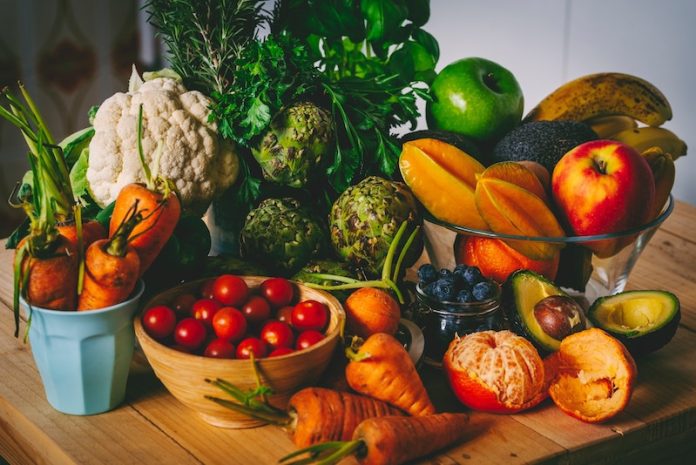
You’ve probably heard a lot about veganism lately. Maybe it’s from a friend who won’t stop talking about how great they feel, or maybe you’ve read about it online.
Either way, a vegan diet has caught your attention for good reason: it has multiple health benefits backed by science.
Studies have shown that a vegan diet can lead to lower rates of heart disease, high blood pressure, type 2 diabetes, and certain types of cancer.
For instance, a study published in the “Journal of the American Heart Association” found that plant-based diets are associated with a lower risk of cardiovascular diseases.
Plus, many people who switch to a vegan diet find that they lose a few pounds without even trying!
What Does a Vegan Diet Involve?
Going vegan is not just about ditching meat; it’s about saying goodbye to all animal products. This means no meat, fish, dairy, or eggs.
The good news is, you’ll be replacing these items with a rainbow of fruits, veggies, grains, nuts, and seeds.
And with all the plant-based alternatives available today, you don’t have to give up your favorite foods like burgers, pizza, or even ice cream!
How to Start Your Vegan Journey
Step 1: Plan Your Protein
Protein is crucial, but contrary to popular belief, you don’t need meat to get enough of it.
Lentils, chickpeas, tofu, and quinoa are all excellent plant-based protein options. Try to include a good source of protein in each meal to keep you full and energized.
Step 2: Don’t Forget Essential Nutrients
While a vegan diet is packed with veggies and nutrients, there are some vitamins and minerals that are naturally less abundant in plant foods.
These include Vitamin B12, iron, and omega-3 fatty acids. To ensure you’re getting enough, consider fortified foods like plant-based milk or supplements as recommended by your doctor.
Step 3: Meal Prep and Planning
One of the keys to sticking with a vegan diet (or any diet, for that matter) is planning your meals. Take a few hours every weekend to prepare some meals for the week.
This makes it much easier to stick to your new diet and avoid last-minute unhealthy food choices.
Bonus Tips:
- Experiment in the Kitchen: The vegan world is full of delicious recipes. Use this as an opportunity to become a master in the kitchen.
- Read Labels: Many processed foods contain hidden animal products like gelatin and whey. Always read labels carefully when grocery shopping.
Before you start any new diet, especially one that involves significant changes, consult your healthcare provider. They can help ensure that your transition to veganism is smooth and healthy.
So there you have it, a straightforward guide to get you started on a vegan diet. With the scientific evidence backing its health benefits and a world of delicious foods to explore, there’s never been a better time to give veganism a try.
Remember, it’s not just about eating differently; it’s about making a lifestyle change for a healthier you!
Follow us on Twitter for more articles about this topic.
Copyright © 2023 Scientific Diet. All rights reserved.








